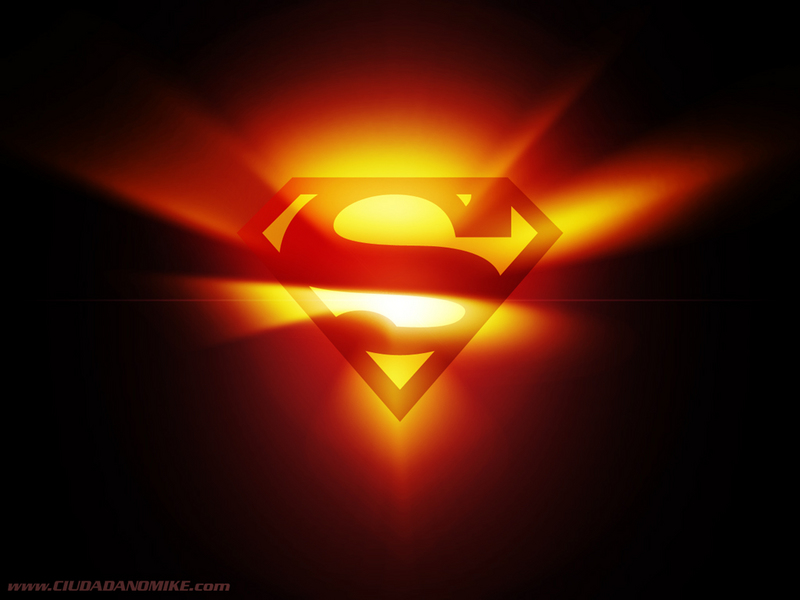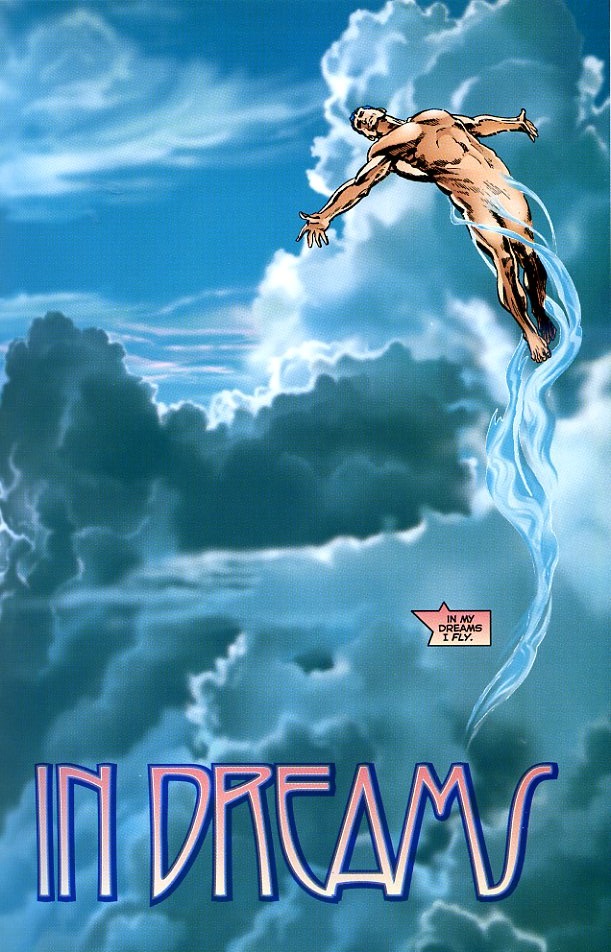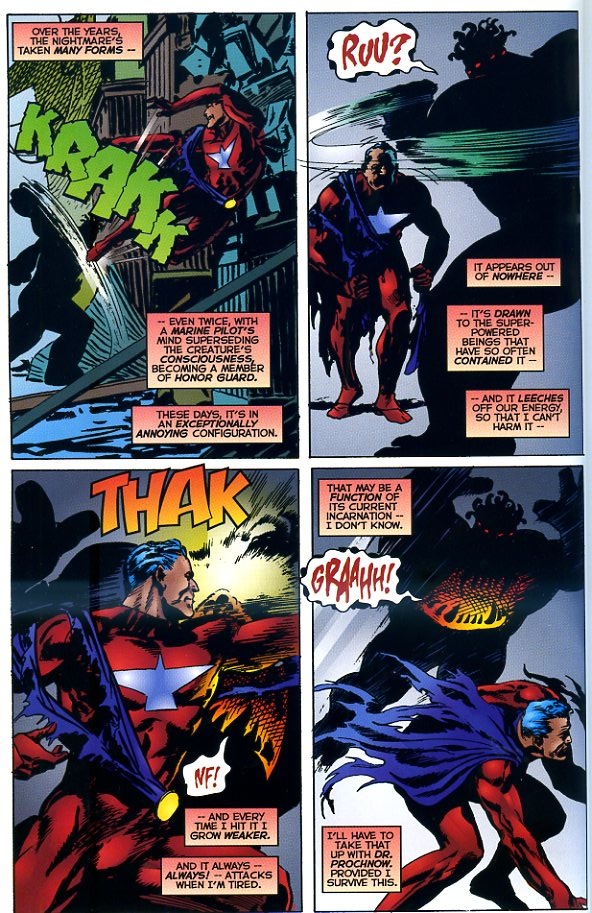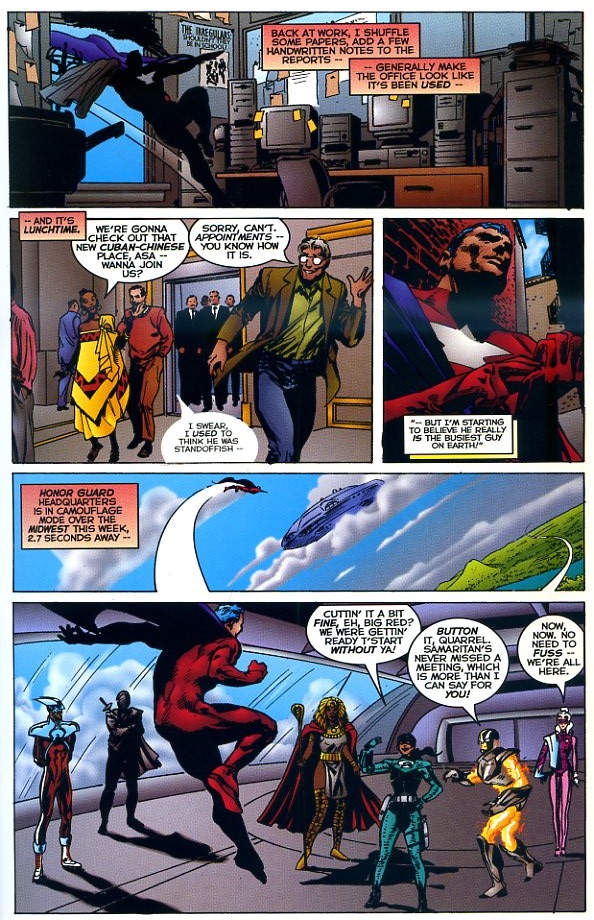Kurt Busiek weighed in in comments a while back about what rights the original creators should have when copyright is extended on works owned by corporations (i.e. Superman.) His thoughts are below.
>> What is your view of the termination rights that have been introduced along with the copyright extensions? >>
I’m not Noah, but I think they’re a necessary corollary of the extensions.
When someone buys an intellectual property, they’re essentially licensing it for the term of copyright, after which point it goes into the public domain. So they were never buying it “forever,” they were buying it for a clearly-defined number of years.
If Congress extends copyright, they’re changing the deal, making their license last longer. The reasoning behind the termination rights is that if the term lasts longer, the purchaser never bargained for that extra period. So who owns the IP for the extended period? It was supposed to be the public, but it isn’t. So should it be the purchaser? The creator? Someone else?
The solution they came up with was to give the creator an opportunity to reclaim the property for that extended period, rather than simply to give the purchaser that extra chunk of ownership time for free. If you’re going to extend copyright in the first place, that seems reasonable — when the company that is now DC bought Superman, they did not have any expectation that they would still own him today. So them owning him today is not part of the initial deal — it’s an artifact of copyright extension, and not something they ever bargained for in good faith. And having the government just hand it to them is a preposterous transfer of value from the public to corporations. [Not that the copyright extension wasn’t a preposterous giveaway anyway, but it’s slightly less preposterous this way. If the deal is going to be made longer, then the terms have been altered, and the other terms should be subject to renegotiation too.]
This all extends from the copyright extension, but it makes sense. If you’d only leased your Camaro for a period of time and the government decided that the lease was going to be extended, you wouldn’t expect that the extension would be free. Not that the Camaro comparison makes any sense — you own that Camaro, but you don’t own the right to make sequels to it, to spin off a line of She-Camaros and the Legion of Teen Camaros and Camaro’s Girl Friend Caprice. Those rights remain with GM.
Still, Congress was giving away what belonged (or would belong, after copyright expiration) to the people, so as the people’s representatives, they got to decide whether to give it to corporations for free or to make it possible to renegotiate the term at the point the deal would have ended under the old rules. It’s almost shocking that they didn’t wholly benefit corporations, but it’s logical that they didn’t — it’s not merely that nobody knew Superman would still be valuable today, it’s that nobody expected Superman to still be an ownable property today, so if he is, there’s room for other changes.
I think copyright lasts too long. I think 25 years for corporate copyrights is too short, but somewhere in between there’s probably a good number. Good luck to anyone trying to get that past Congress against the will of Disney, though.
And I think $11 million is a lot of money, but it’s a fraction of what Superman should have earned for its creators. As a comparison, CARRIE was an early sale, too, and the deal was weighted heavily toward the publisher, but it’s made its creator a lot more money than the first couple hundred pages of Superman. Or TO KILL A MOCKINGBIRD, to pick another first novel. That the Superman creators were profligate with what they got doesn’t mean it was enough — and while they might well have been legally stuck with it, DC shouldn’t be any less stuck with copyright expiration and/or reversion, but as noted, corporations change the rules in ways we’d call greedy if it was individuals doing it.
The freaky part is, the value in having Bob Kane happy and pro-DC versus the expense and public-perception damage of having this kind of case go on is a monetary issue, too, and it’s not like this stuff came as a surprise. The point at which to head off this kind of case — not just for Superman, but for Kirby creations and Gardner Fox creations and so forth and so on — was ten years before the termination window opened, and through something more generous than a nice pension that’s dwarfed by the scale of the profits rolling in.
These days, of course, contracts are written to get around the specter of potential future copyright extension and reversion, though who knows whether that’ll be held to be legal in decades to come? If it doesn’t, I expect that we’ll be hearing that creators who take advantage of changes in the law are greedy, while corporations taking advantage are being fiduciarily responsible.
So it goes. And $11 million is a lot of money, but how much of the $4-plus billion George Lucas is getting is about the IP rights to STAR WARS? Lots of heated argument to be had on that, I’m sure — but circling back to the start, I think termination rights are an artifact of extension. If termination shouldn’t be allowed, then extension shouldn’t have been, either.
In which case, Superman would have entered the public domain in 1994, and been free for anyone to use for the past 18 years. Every day of DC’s ownership of the character since then (plus the years of ownership still to come) was a gift given from the public to DC, and one of the restrictions we put on that gift was that the creators had the right to take it back during a particular window.
Considering the value of that gift, the public had the right to put whatever strings they wanted on it, really, and if one of those strings was that Siegel and Shuster and their estates got a shot at benefiting from that gift too, that’s not really so bad.





